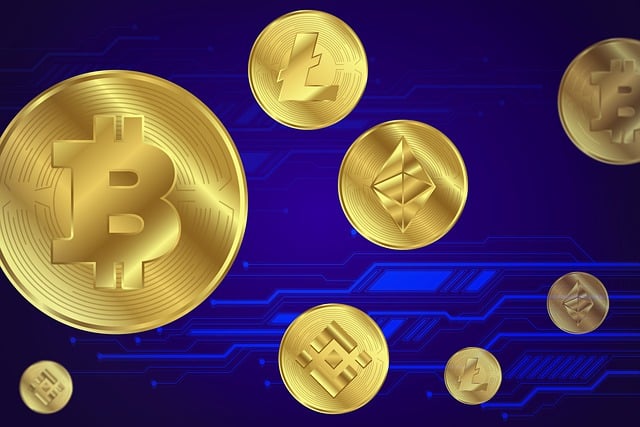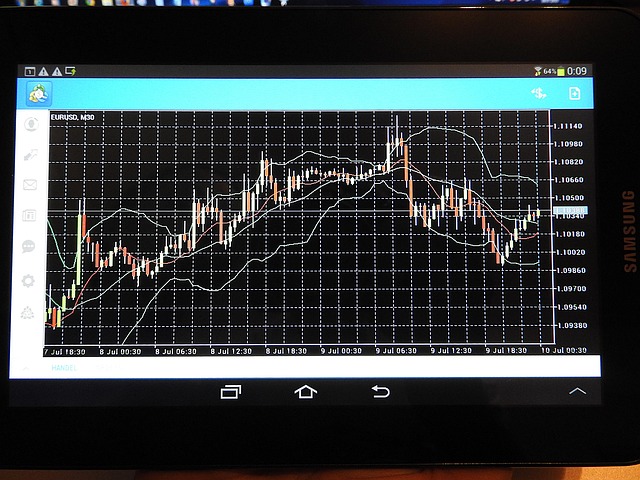Is Binance Future Trading Halal? A Comprehensive Islamic Perspective
Author: Jameson Richman Expert
Published On: 2025-09-05
Prepared by Jameson Richman and our team of experts with over a decade of experience in cryptocurrency and digital asset analysis. Learn more about us.
Understanding whether Binance futures trading aligns with Islamic principles is a vital concern for Muslim traders who seek to participate in contemporary financial markets without compromising their faith. As the cryptocurrency ecosystem experiences rapid expansion globally, Muslim investors are increasingly scrutinizing various trading activities through the lens of shariah compliance. Derivative instruments like futures, which encompass leverage, speculation, and complex contractual arrangements, pose particular challenges from an Islamic perspective. This detailed article delves into the core principles of Islamic finance, analyzes the nature of crypto futures trading on Binance, reviews scholarly opinions, and provides practical guidance for navigating this nuanced landscape while striving for halal compliance.

Introduction to Binance and Cryptocurrency Futures
Binance is recognized as one of the world’s leading cryptocurrency exchanges, offering a broad spectrum of trading services including spot trading, derivatives such as futures and options, staking, liquidity pools, and savings products. Its futures platform enables traders to speculate on the future price movements of cryptocurrencies through contracts that are categorized as either long (buy) or short (sell), often employing leverage to amplify potential profits. Cryptocurrency futures are financial derivatives that obligate traders to buy or sell a specified amount of an underlying crypto asset at a predetermined price at a future date or upon certain conditions being met.
The primary purposes of futures trading include hedging against market volatility, engaging in rapid speculation, and increasing market exposure via leverage. However, futures inherently involve high degrees of risk, uncertainty, and speculative behavior—elements that are critically scrutinized within Islamic finance, which emphasizes justice, transparency, and the avoidance of gharar (excessive uncertainty) and riba (interest). The question of whether engaging in Binance futures trading aligns with shariah law requires a comprehensive understanding rooted in Islamic jurisprudence.
Core Principles of Islamic Finance and Their Relevance to Crypto Trading
Islamic finance is grounded in principles derived from the Quran, Sunnah, ijma (scholarly consensus), and qiyas (analogical reasoning). These principles promote fairness, social justice, and ethical conduct in monetary transactions. The main prohibitions relevant to trading include:
- Riba (Interest): Any guaranteed, predetermined return on loans or investments is forbidden. This prohibition extends beyond traditional interest to any unjust profit or earnings derived from money itself or transactions resembling interest-based lending.
- Gharar (Excessive Uncertainty): Transactions characterized by ambiguity, vagueness, or excessive risk are prohibited. This encourages clear, transparent contractual terms to prevent exploitation or unjust enrichment.
- Haram (Forbidden Activities): Investing in assets associated with haram industries—such as alcohol, gambling, pork, or immoral entertainment—is impermissible.
- Maisir (Gambling): Activities that resemble gambling—characterized by high risk and chance with the primary aim of speculative profit—are prohibited. This includes transactions akin to betting or those with uncertain outcomes that resemble gambling.
Applying these principles to crypto futures trading involves a careful analysis of leverage mechanisms (which may involve interest or riba), the level of speculation, market transparency, and the nature of underlying assets. The overarching goal is to avoid unjust, exploitative, or unethical financial activities while promoting justice, fairness, and social responsibility consistent with Islamic teachings.
Are Cryptocurrency Futures Considered Haram in Islam?
The permissibility of trading cryptocurrency futures, especially through platforms like Binance, remains a subject of debate among Islamic scholars. Several core concerns underpin the cautious or prohibitive stance:
- Speculation and Gharar: Futures markets inherently involve forecasting, speculation, and high volatility. Such activities often resemble gambling (maisir), which is explicitly prohibited in Islam. Excessive gharar—uncertainty and ambiguity—can lead to unjust enrichment or exploitation, rendering the activity non-permissible if it causes unjust outcomes.
- Leverage and Riba: Many futures platforms offer leverage by borrowing funds, which can involve interest (riba). Even if the platform does not explicitly charge interest, the mechanisms involved—such as margin trading—may emulate interest-based debt structures, raising serious shariah compliance issues.
- Underlying Assets and Market Behavior: The halal status depends on the assets being traded. Cryptocurrencies linked to haram industries or associated with unethical practices, market manipulation, or lack of transparency compromise the permissibility of such trades.
Some scholars posit that if futures trading is conducted with strict controls—such as avoiding leverage, ensuring the underlying assets are halal, and minimizing speculation—it might be permissible under specific conditions. Nonetheless, this opinion remains contested, and many scholars advocate caution, emphasizing the importance of thorough Islamic legal analysis. Responsible traders are encouraged to pursue halal trading methods, seek advice from qualified Islamic scholars, and prioritize transparency and ethical conduct.

Evaluating Binance Futures Trading for Halal Compliance
To assess whether Binance futures trading can be considered halal, several critical factors must be evaluated:
- Interest (Riba): The use of margin trading involves borrowing funds, often with interest. If interest is involved—explicitly or implicitly—such trading is haram. Traders should verify the financing mechanisms involved and consider avoiding interest-based borrowing.
- Speculation and Gharar: Futures inherently involve prediction and uncertainty. Excessive speculation, especially with high leverage, can resemble gambling and violate Islamic principles. Responsible risk management and moderation are key considerations.
- Underlying Cryptocurrencies: The assets being traded must be scrutinized to ensure they are not linked to haram industries. Due diligence on the asset's utility, source, and the ethics of its use is essential.
- Leverage and Risk Management: High leverage magnifies risk, increases the likelihood of unjust gains or losses, and can promote gambling-like behavior. Using minimal or no leverage and adopting prudent risk management aligns better with Islamic ethics.
Ultimately, many scholars recommend favoring trading methods that minimize risk and avoid interest, such as spot trading or long-term investing, while exercising extreme caution with derivatives and leverage. Consulting with qualified Islamic financial advisors and scholars ensures informed decisions that uphold Islamic principles.
Alternative Halal Strategies for Cryptocurrency Trading
For Muslims committed to strict adherence to Islamic law, alternative approaches include:
- Spot Trading: Engaging in straightforward buying and holding of cryptocurrencies without leverage reduces speculative risk and aligns more closely with Islamic principles dedicated to ownership and long-term value.
- Shariah-Compliant Crypto Funds: Investing in funds that have undergone Islamic scholarly review ensures compliance. These funds typically screen assets for ethical criteria and exclude haram industries, reducing the risk of unintentional violations.
- Supporting Ethical Blockchain Projects: Participating in projects that promote transparency, social good, and ethical use cases—such as blockchain for charitable causes, social enterprises, or fair supply chains—resonates with Islamic values on social justice and ethics.
Engaging with Islamic scholars or financial advisors experienced in halal investing provides additional assurance. Resources like detailed guides on shariah-compliant crypto investing can further assist in aligning financial activities with Islamic ethics.
Practical Steps to Start Trading on Binance and Other Platforms
If a trader decides to proceed, adherence to transparency, security, and Islamic ethical standards is paramount. Steps include:
- Register on reputable exchanges such as Binance, ensuring the platform’s legitimacy and security.
- Review terms related to margin and leverage to ensure no interest-bearing loans are involved; prefer trading with minimal or zero leverage.
- Prioritize spot trading or long-term holdings over derivatives involving high speculation.
- Consult Islamic financial scholars or muftis for personalized guidance tailored to individual circumstances and risk appetite.
- Stay informed through resources such as this detailed analysis of trading legality in Islam.
Responsible trading involves ongoing education, ethical diligence, and adherence to Islamic principles, ensuring that one's financial activities reflect both faith and integrity.

Conclusion: Navigating Cryptocurrency Trading within Islamic Ethics
In conclusion, the permissibility of Binance futures trading from an Islamic perspective hinges on multiple considerations—particularly leverage, speculation, market transparency, and underlying assets. While some scholars caution against high-risk, interest-bearing, or gambling-like activities, others suggest that controlled, ethically conducted trading might be permissible under strict guidelines. The key is to conduct thorough research, seek guidance from qualified Islamic scholars or financial experts, and prioritize transparent, ethical practices consistent with Islamic values.
Engaging responsibly in cryptocurrency trading not only ensures compliance with Islamic law but also promotes a sustainable, ethical approach to financial growth rooted in justice, social responsibility, and integrity. Continuous education, awareness of market developments, and reliance on scholarly advice are essential. For ongoing insights and detailed analyses, resources like this resource on Bitcoin market trends can be invaluable for Islamic investors seeking to balance faith with financial innovation.